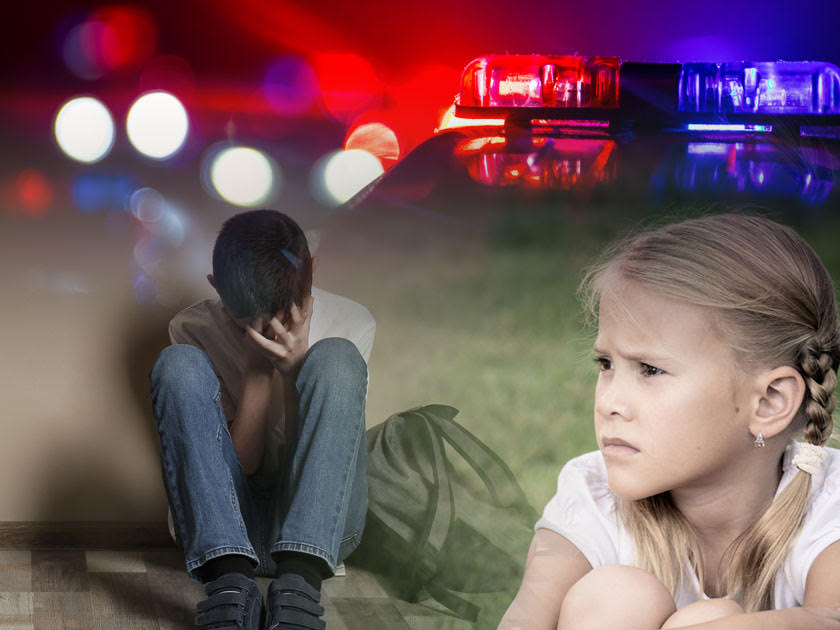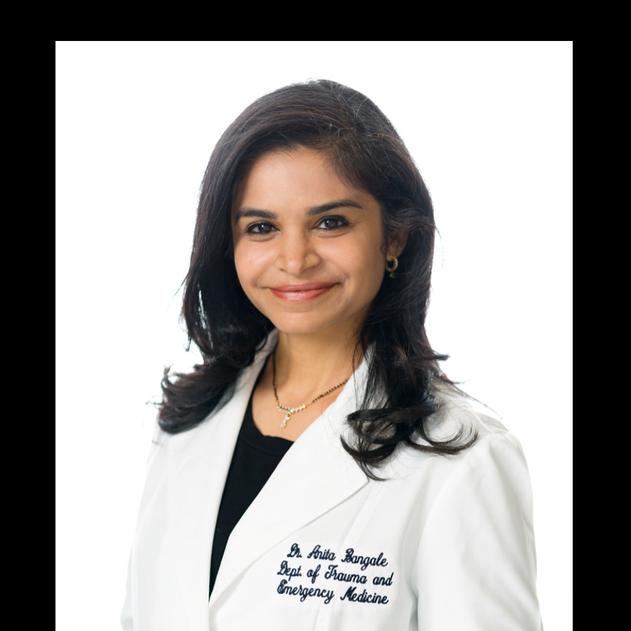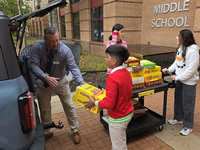- Sections :
- Crime & Public Safety
- Restaurants & Food
- Sports
- More
Categories
Students Under Pressure, Under Fire, Under the Circumstances: A multipart series on local youth in peril, Part 1
[EDITOR’S NOTE: This series addresses the environment, actions, and consequences of Woodlands area youth acting on and reacting to pressures external and self-created, and their resulting responses that adversely affect them and those around them. If you are – or know of – a local youth in need of assistance, Woodlands Online encourages you to seek help from the proper resources discussed in these articles. While the quotes of others are directly transcribed, the views expressed by the author of this series may not necessarily represent those of Woodlands Online or its staff.]
THE WOODLANDS, TX – Students, faculties, parents, and the public at large are still reeling from a seemingly nonstop onslaught of headlines discussing minors killing and dying. While school shootings are mercifully relatively rare – though still a tragedy to all involved –
when they occur they dominate the news cycles and social media outrage. However, there is something vastly more deadly – and insidious – taking the lives of our youth, and this comes in the exploding world of fentanyl and other opiate-related deaths.
To put it in perspective, a May 2022 report by The Washington Post estimates that in the United States a total of approximately 185 children, educators and other people have been killed – and another 369 have been injured – in school-related shootings and assaults since the massacre at the Columbine High School in 1999. However, the Journal of American Medical Association recently published findings stating that there were 492 adolescent overdose deaths in the U.S. in 2019 and 954 in 2020, with data indicating another 1,146 in 2021. Approximately five times the casualties of student drug overdose deaths than school gun violence in one-third of the time. That same report stated that the overdose mortality rate among U.S. adolescents 14 to 18 years old rose by 94 percent between 2019 and 2020. The rate increased by another 20 percent when comparing data from 2020 to provisional, annualized data for 2021.
And from a local perspective, it is clear that, of the two scenarios, each year drugs have and will take more lives of our local students than firearms have and will in The Woodlands area. This sad but true fact has most recently been realized in the deaths of two Woodlands High School seniors – and the subsequent arrest of their alleged teenaged drug supplier – right as this school year was ending. The incident is still under investigation by the Montgomery County Sheriff’s Office.
While the battle rages on between both sides of the gun debate, as well as differing opinions on how to handle the grim increase in opiates across our borders, the intractability of those in power can pretty much guarantee that there will be no answers any time soon, and even should any be formed in time, they won’t be easy answers. However, it seems that every time there is an incident in the forced death of a child – whether by firearm or drug – the topic of mental health is bandied about. However, while the topic of mental health is a point of contention in acts of violence, it rarely comes up with the same fervor when talking of acts of suicide or accidental death due to drugs.
This author sat down with Dr. Anita Bangale, a medical doctor who is one of the physicians and co-owners at America’s ER on the west side of The Woodlands. Not only is she board certified in emergency medicine, but she runs a personal development clinic called Diya, a name derived from the Sanskrit word meaning ‘gift.’ Dr. Bangale, who received her M.D. sixteen years ago and has been practicing medicine in The Woodlands since 2013, stresses the importance of distinguishing between mental health and emotional health.
Bangale has a firm sense of the interrelation between the health of body, mind, and emotion. Her father, too, was a doctor, who retired in 2021 after 46 years as a solo practitioner in family medicine. As a small child in Fort Worth, Anita Bangale spent hours making rounds with him, back in the days where hospital rules were more lax. “My father has been my inspiration,” she said. “I just loved seeing how he truly cared for his patients.”
The younger Bangale always felt a desire to diagnose and heal the emotional side of a patient’s distress as well as the physical side. “I do emergency medicine as a physician, and I’m also a certified life coach. As founder of Diya Coaching, my life-coaching consulting business, I primarily work with families – whether they be parents, teens, adolescents, or young adults – to focus on their emotional health.”
Oftentimes, the issues she addresses at the clinic can range from time organization techniques for high schoolers who know that they want to be able to improve their morning habits or their sleep habits, to women asking how they can avoid a toxic comparison, to those finding themselves addicted to social media.
“So many impressionable young people can’t stop themselves from staring at social media and comparing themselves to people who seem to have it so much better in life,” she said.
Bangale feels that sometimes the all-encompassing effects of emotional wellness – or lack thereof – get stifled by the more popular appeal of discussing mental health. While frequently the issue of mental health is controlled by chemical and other physical means, she works with establishing patterns that affect pathways in the brain itself to equalize the emotional aspects.
“The way we think about life coaching is the way people think about a personal trainer at a gym,” she said. “We know that muscle memory is a reality, and the brain is a muscle, so we know that the more we practice something, it may not go right the first time, but we’re laying down that path, that foundation. The more we practice that daily habit, the more that we really change the trajectory of our life. If we can use and tap into the neuroplasticity of the brain, we can start developing good habits and good traits.”
When dealing with an impressionable mind, Bangale feels going back to basics is a good first step. Her first sessions with a client are spent determining, at the core, what that person wants. Too often, she maintains, these people rely on the sometimes-misleading narrative of social media to point at someone else’s virtual supposed life and say, “That’s what I want,” but that life they want to emulate is what she terms ‘external’ at best, and outright false and deadly at worst.
When asked about the apparent rise in crises facing students in our area, Bangale stresses that communication is key if children and their parents want to avoid tragedy. “I work closely with adolescents, and I hear about some of the pressures they face,” she said. “I think more so in my line of work I see a lot of the students who feel unhappy in their life for whatever reason, and they don’t feel comfortable talking with either friends or family about it, so they turn to something external. Sometimes it’s alcohol, drugs, or video gaming. For some it’s not doing schoolwork, or exhibiting a lack of motivation. But however it manifests, I try to convey that talking with me is like them talking with a reflection of themselves and discovering who they are, what they want, and how they can avoid going into an external place where they feel they need to artificially create happiness.”
At her clinic, Bangale offers one-on-one, family, and group sessions. One of her goals is to be able to go into schools and offer small group sessions, not unlike tutoring sessions. “As important as America’s ER is to me, also Diya is my passion project. I make it as easy as possible to set up a complimentary consultation, even via text, where we can get down to questions like, ‘Where are you in your life? Where do you want to go? And how can we create a map for you to get there?’”
It is critical to Bangale that if someone is in distress, they reach out to anyone even if it’s not her. “If there’s anyone struggling for whatever reason, in our community there are so many different programs, so many different people who want to help. But we have to know you want the help. So take one step, communicate it with someone whether it’s a friend or a teacher or someone in your family, and they can help you get the advice you need. There’s nothing wrong with being vulnerable. It’s that moment of vulnerability that actually carries the most courage. And if you can just lean into that vulnerability and say you need that help, you don’t even have to say why, just reach out to me – or someone like me – and have a conversation. Everything is completely private. And if I feel that there is something that is beyond my scope of work, we can certainly get you in touch with the right type of resources.
“We know that people are not going to be successful – whether it’s graduation or going on to college or succeeding in life or achieving what they want – if they’re not developing that skill of resilience and grit. There’s going to be problems in everyone’s life, and that’s what I want everyone in the Woodlands to know: no matter what or where you live, every single person is going to face challenges. And if you can broaden your tool set to handle it, you can do anything.”
More information about Dr. Anita Bangale can be found at www.anitabangale.com.
In the next installment of Students Under Pressure, Under Fire, Under the Circumstances, Denise Cipolla, the recently retired Coordinator of Guidance & Counseling at Conroe Independent School District, discusses the educational aspects of the trials and travails facing children as seen from her perspective from 25 years as an educational counselor in CISD.
Part 1: Mental Health versus Emotional Health
THE WOODLANDS, TX – Students, faculties, parents, and the public at large are still reeling from a seemingly nonstop onslaught of headlines discussing minors killing and dying. While school shootings are mercifully relatively rare – though still a tragedy to all involved –
when they occur they dominate the news cycles and social media outrage. However, there is something vastly more deadly – and insidious – taking the lives of our youth, and this comes in the exploding world of fentanyl and other opiate-related deaths.
To put it in perspective, a May 2022 report by The Washington Post estimates that in the United States a total of approximately 185 children, educators and other people have been killed – and another 369 have been injured – in school-related shootings and assaults since the massacre at the Columbine High School in 1999. However, the Journal of American Medical Association recently published findings stating that there were 492 adolescent overdose deaths in the U.S. in 2019 and 954 in 2020, with data indicating another 1,146 in 2021. Approximately five times the casualties of student drug overdose deaths than school gun violence in one-third of the time. That same report stated that the overdose mortality rate among U.S. adolescents 14 to 18 years old rose by 94 percent between 2019 and 2020. The rate increased by another 20 percent when comparing data from 2020 to provisional, annualized data for 2021.
And from a local perspective, it is clear that, of the two scenarios, each year drugs have and will take more lives of our local students than firearms have and will in The Woodlands area. This sad but true fact has most recently been realized in the deaths of two Woodlands High School seniors – and the subsequent arrest of their alleged teenaged drug supplier – right as this school year was ending. The incident is still under investigation by the Montgomery County Sheriff’s Office.
While the battle rages on between both sides of the gun debate, as well as differing opinions on how to handle the grim increase in opiates across our borders, the intractability of those in power can pretty much guarantee that there will be no answers any time soon, and even should any be formed in time, they won’t be easy answers. However, it seems that every time there is an incident in the forced death of a child – whether by firearm or drug – the topic of mental health is bandied about. However, while the topic of mental health is a point of contention in acts of violence, it rarely comes up with the same fervor when talking of acts of suicide or accidental death due to drugs.
This author sat down with Dr. Anita Bangale, a medical doctor who is one of the physicians and co-owners at America’s ER on the west side of The Woodlands. Not only is she board certified in emergency medicine, but she runs a personal development clinic called Diya, a name derived from the Sanskrit word meaning ‘gift.’ Dr. Bangale, who received her M.D. sixteen years ago and has been practicing medicine in The Woodlands since 2013, stresses the importance of distinguishing between mental health and emotional health.
Bangale has a firm sense of the interrelation between the health of body, mind, and emotion. Her father, too, was a doctor, who retired in 2021 after 46 years as a solo practitioner in family medicine. As a small child in Fort Worth, Anita Bangale spent hours making rounds with him, back in the days where hospital rules were more lax. “My father has been my inspiration,” she said. “I just loved seeing how he truly cared for his patients.”
The younger Bangale always felt a desire to diagnose and heal the emotional side of a patient’s distress as well as the physical side. “I do emergency medicine as a physician, and I’m also a certified life coach. As founder of Diya Coaching, my life-coaching consulting business, I primarily work with families – whether they be parents, teens, adolescents, or young adults – to focus on their emotional health.”
Oftentimes, the issues she addresses at the clinic can range from time organization techniques for high schoolers who know that they want to be able to improve their morning habits or their sleep habits, to women asking how they can avoid a toxic comparison, to those finding themselves addicted to social media.
“So many impressionable young people can’t stop themselves from staring at social media and comparing themselves to people who seem to have it so much better in life,” she said.
Bangale feels that sometimes the all-encompassing effects of emotional wellness – or lack thereof – get stifled by the more popular appeal of discussing mental health. While frequently the issue of mental health is controlled by chemical and other physical means, she works with establishing patterns that affect pathways in the brain itself to equalize the emotional aspects.
“The way we think about life coaching is the way people think about a personal trainer at a gym,” she said. “We know that muscle memory is a reality, and the brain is a muscle, so we know that the more we practice something, it may not go right the first time, but we’re laying down that path, that foundation. The more we practice that daily habit, the more that we really change the trajectory of our life. If we can use and tap into the neuroplasticity of the brain, we can start developing good habits and good traits.”
When dealing with an impressionable mind, Bangale feels going back to basics is a good first step. Her first sessions with a client are spent determining, at the core, what that person wants. Too often, she maintains, these people rely on the sometimes-misleading narrative of social media to point at someone else’s virtual supposed life and say, “That’s what I want,” but that life they want to emulate is what she terms ‘external’ at best, and outright false and deadly at worst.
When asked about the apparent rise in crises facing students in our area, Bangale stresses that communication is key if children and their parents want to avoid tragedy. “I work closely with adolescents, and I hear about some of the pressures they face,” she said. “I think more so in my line of work I see a lot of the students who feel unhappy in their life for whatever reason, and they don’t feel comfortable talking with either friends or family about it, so they turn to something external. Sometimes it’s alcohol, drugs, or video gaming. For some it’s not doing schoolwork, or exhibiting a lack of motivation. But however it manifests, I try to convey that talking with me is like them talking with a reflection of themselves and discovering who they are, what they want, and how they can avoid going into an external place where they feel they need to artificially create happiness.”
At her clinic, Bangale offers one-on-one, family, and group sessions. One of her goals is to be able to go into schools and offer small group sessions, not unlike tutoring sessions. “As important as America’s ER is to me, also Diya is my passion project. I make it as easy as possible to set up a complimentary consultation, even via text, where we can get down to questions like, ‘Where are you in your life? Where do you want to go? And how can we create a map for you to get there?’”
It is critical to Bangale that if someone is in distress, they reach out to anyone even if it’s not her. “If there’s anyone struggling for whatever reason, in our community there are so many different programs, so many different people who want to help. But we have to know you want the help. So take one step, communicate it with someone whether it’s a friend or a teacher or someone in your family, and they can help you get the advice you need. There’s nothing wrong with being vulnerable. It’s that moment of vulnerability that actually carries the most courage. And if you can just lean into that vulnerability and say you need that help, you don’t even have to say why, just reach out to me – or someone like me – and have a conversation. Everything is completely private. And if I feel that there is something that is beyond my scope of work, we can certainly get you in touch with the right type of resources.
“We know that people are not going to be successful – whether it’s graduation or going on to college or succeeding in life or achieving what they want – if they’re not developing that skill of resilience and grit. There’s going to be problems in everyone’s life, and that’s what I want everyone in the Woodlands to know: no matter what or where you live, every single person is going to face challenges. And if you can broaden your tool set to handle it, you can do anything.”
More information about Dr. Anita Bangale can be found at www.anitabangale.com.
In the next installment of Students Under Pressure, Under Fire, Under the Circumstances, Denise Cipolla, the recently retired Coordinator of Guidance & Counseling at Conroe Independent School District, discusses the educational aspects of the trials and travails facing children as seen from her perspective from 25 years as an educational counselor in CISD.
Comments •






















